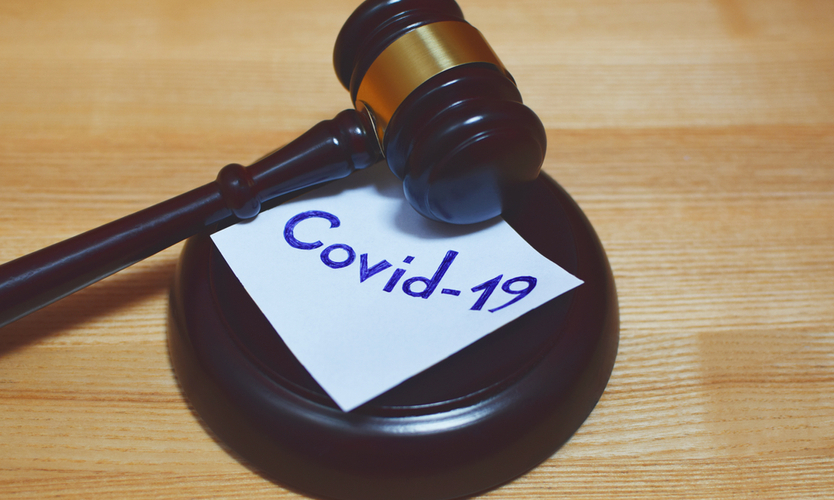NY appeals court issues opposing rulings on comp benefits over COVID deaths
- September 16, 2025
- Posted by: Web workers
- Category: Workers Comp

The family of a gravedigger who died of COVID-19 after working to bury those who died of infections in early 2020 can collect workers compensation death benefits but the family of a refrigerator engineer who succumbed to the illness in early 2021 is not eligible, according to two rulings issued Thursday by the Appellate Division of the Supreme Court of the State of New York.
Wellwood Cemetery Association Inc. denied the death benefits claim filed by the spouse of one of its workers who died of cardiopulmonary arrest following a COVID-19 infection in April 2020 but a workers compensation law judge and the state Workers’ Compensation Board ordered the employer’s insurer to pay benefits. The appeals court affirmed, writing in Matter of Flores v. Wellwood Cemetery Assoc. Inc., et al. that the worker was not provided personal protective equipment when he assisted in burials and that a coworker had tested positive for the virus just before the man became ill.
“Substantial evidence supports the determination that decedent contracted COVID-19 in the course of his employment and therefore that his death arose out of and in the course thereof,” the court wrote.
In Matter of Rottkamp v. New York Univ., the appeals court ruled that the death of a refrigerator engineer working at New York University who became ill in February 2021, whose children were attending school and also fell ill, is not compensable.
As documented in court records, the engineer tested negative for the virus on Feb. 22, 2021, two weeks after testing positive, and went back to work. One day later he “complained of a severe headache and later was found unresponsive in his apartment.” He was transported to a local hospital, where he died on March 4, 2021.
“Although decedent’s attending physician classified decedent’s death as a cardiac death, decedent’s death certificate listed the cause of death as COVID-19,” records state.
The court wrote that the man’s family “neither alleged nor tendered proof that decedent suffered a specific exposure to COVID-19 at his place of work.”
“As to the issue of prevalence, other than acknowledging that decedent was required to wear a mask at work, (survivors were) unable to provide any information regarding decedent’s job description, work environment or degree of contact with the public and offered no proof regarding the rate of infection present in decedent’s work environment,” the ruling states, adding that “(r)ather, claimant relied upon decedent’s admittedly hearsay statement to his treating physician that he ‘got (COVID-19) at work.’”



